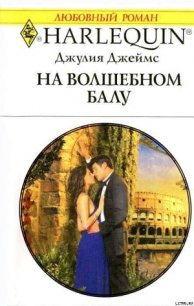Julia Ward Howe - Richards Laura E. (бесплатная регистрация книга TXT) 📗
"One long room runs the whole length of one side of the palace, and serves us at once for dining and reception room. A long corridor encounters this room at right angles, entirely open to the weather, on one side. These two spaces constitute all our resources for receiving company. We lit them with Downer's best [kerosene] and ranged rows of rocking-chairs, opposite to each other, after the manner of this country, and also of Cuba.
"The company began to arrive at 8 P.M. The young ladies were mostly attired in colored tarlatans, prettily trimmed with lace and flowers. Some of them were not over fourteen years of age. All were quite youthful in their appearance, and unaffected in their manners. The young men, mostly employed in the various shops of the city, were well-dressed and polite. The band was somewhat barbaric in its aspect. A violin, a 'cello, a tambourine, and a clarinet. The clarinet-player was of uncommon size, with wild, dark eyes, which seemed to dilate as he played....
"The dancing continued with little interruption until nearly 2 A.M. We were told that it is often continued till daylight. From time to time an attack was made upon the two tables. But the enjoyment of the good things provided was quite moderate compared with the cramming of a first-class party in Boston or New York. The guests were of many shades, as to color, although the greater number would have passed for white people, anywhere. Some of the handsomest among them were very dark. One young man reminded us of Edwin Booth in "Othello."... None of these people look like the mulattoes in the North. The features and the fibre appear finer, and the jet-black hair often suggests an admixture of Indian blood. The difference of social position shows itself in the manners of these people. The cruel colorphobia has never proscribed them. They have no artificial sense of inferiority, but take themselves as God made them, and think that if He is content with their complexions, mankind at large may be so.
"We were much pleased with our party, and with the simple and unaffected gayety of our guests. It was really a party in the open air, one whole side of our ballroom being unenclosed, save by the infrequent colonnade. We looked from the dancers to the stars, and back again to the dancers. It was all fairylike and dreamlike. The favorite 'dansa' much resembles, not a ballet, but a stage dance, such as is introduced in the course of the drama. The beer flowed, and the couples flew. One innovation we introduced, a Virginia reel, which the clever clarinet-player caught and accompanied. The figures much amazed the natives. The denouement of Mr. Leland's classic ballad was wanting. No
"'Gompany fited mit daple lecks
Till de coonshtable made em shtop';
yet we may quote further from that high source:—
"'Hans Breitmann gife a barty,
Where ish that barty now?
* * * * * *
All goned afay mit der lager pier,
Afay in der Ewigkeit!'"
The Journal gives pleasant glimpses of the Santo Domingo days.
"M. Marne, a Frenchman ninety-seven years old, paid us a visit. Had been secretary of Joseph Buonaparte in Madrid—praised him much. Talked very copiously and not ill. Enjoys full mental and physical activity. Lives at a small village in sight of our windows, but on the other side of the river. Talked much of the Roi Cristophe."
The mention of this old gentleman recalls her visit to a Dominican padre, himself in extreme age, who told her that he had known a negress who lived to the age of one hundred and forty-three; he had confessed and buried her. "She had her teeth and her hair still."
"Not to market to-day, but breakfast early—then all hands to the cathedral to see the high mass performed—to-day in honor of the independence of the island....
"Baez' face, cunning, pretty strong, enjoue, as if he must be, or seem, a bon enfant.... The noise at the elevation of the Host a perfect Babel. Music, 'Ernani,' 'Fra Diavolo,' with some similar things. A single trumpet shrieked at some high moments. The bells rang like a thousand tin pans. Orchestra and chorus not together and both out of tune. The ceremony otherwise perhaps as well as usual. A priest made a brief address in Spanish, praising the day and complimenting the President...."
"Studied Baur, Aristophanes, and 'Etudes sur la Bible.' Music lesson to Maud. O'Sullivan to dine.... Baez sent word that he would visit us between 5 and 6 P.M. We accordingly put things in the best order possible under the circumstances. Ung puo de tualetta for the ladies seemed proper. At dinner received Baez' card with a great dish of fine sapotes. Baez arrived. He speaks French quite tolerably, is affable, and has an intelligent face; in fact looks like a person of marked talent. We talked of things in the United States. He has made fourteen voyages to Europe.... I sang 'Una Barchetta' for him. He came with one servant, who stayed outside—no ceremony and no escort...."
After the beauty of the place—indeed possibly before it—she valued the opportunity that came to her of preaching. On the voyage to Santo Domingo she had learned of a shepherdless flock of colored Protestants, their minister dead, their "elder" disabled by lameness. Here was an opportunity not to be lost. She engaged to hold Sunday evening services in their church, a small wooden building with a mud floor and a mahogany pulpit. The "Reminiscences" describe these services; the tattered hymn-books whose leaves were turned mechanically while the congregation (few of whom could read) sang with a will the hymns they knew by heart; the humble, devout people with their attentive faces.
When Holy Week came, the congregation begged her to hold special services. They wished their young people to understand that these sacred days meant as much to them as to the surrounding Catholics. Accordingly she and her companion "dressed the little church with flowers. It looked charmingly. Flowers all along the railing [here follows in the Journal a pen-and-ink sketch], flowers in the pulpit over my head. Church was crowded. Many people outside and at the windows."
She always remembered with pleasure one feature of her Easter sermon, her attempt to describe Dante's vision of a great cross in the heavens, formed of star clusters, each cluster bearing the name of Christ. "The thought," she says, "that the mighty poet of the fourteenth century should have something to impart to these illiterate negroes was very dear to me."
One of the party has an undying impression of this Easter service: the shabby little chapel crowded with dark faces, and the preacher, standing touched by a ray of sunlight, speaking to that congregation of simple black people. In her notes she speaks of these services.
"A pastoral charge bringing me near to the hearts and sympathies of the people. I have preached five times in the little church, including Good Friday and Easter Monday. This service, which has not been without its difficulties, is so much better to me in remembrance than anything else I have done here that I must make a little break and pause before I speak of other things.
"In this pause I remember my prayer at Puerto Plata, that I and mine might come to this new region with a reverent and teachable spirit. That prayer was an earnest one to me. I hope it has, as all prayers should, accomplished its own fulfilment. I have been here among dear people. I find all the human varieties in this society, not digested and harmonized by noble culture, but existing and asking for the centralizing and discriminating agencies which in civilization sort out the different tastes, characters, and capacities, and assign to each its task, giving devotion its wings and crime its treadmill. This little population in a great country, a country in which Nature allows no one to starve, has lived and so shown its right to live and maintain itself. It has accomplished its political division from a state antipathetic to it, having its dark face turned fixedly towards barbarism [Hayti].




